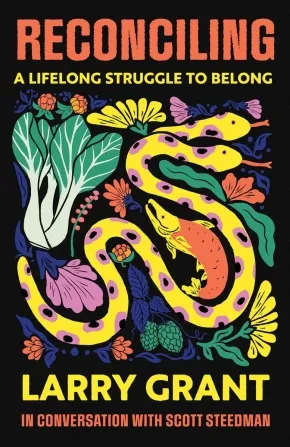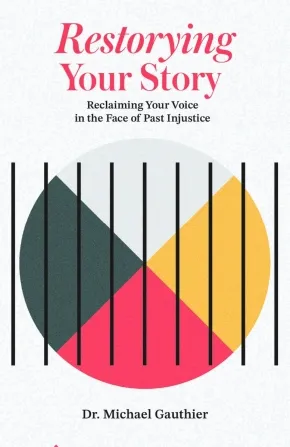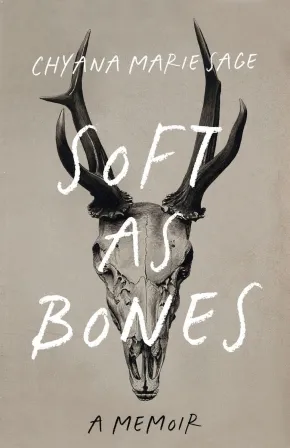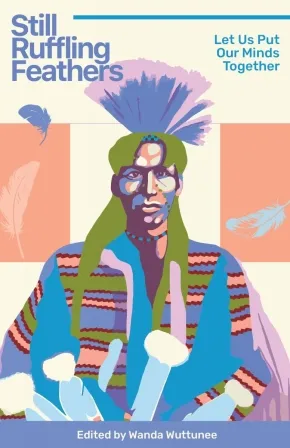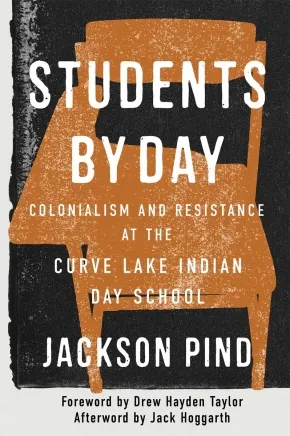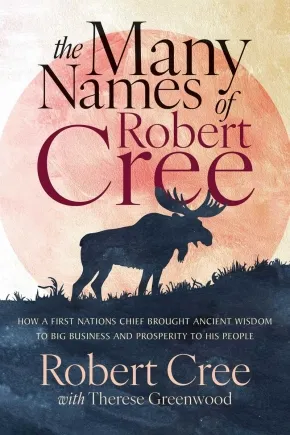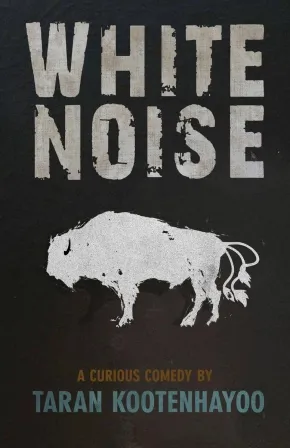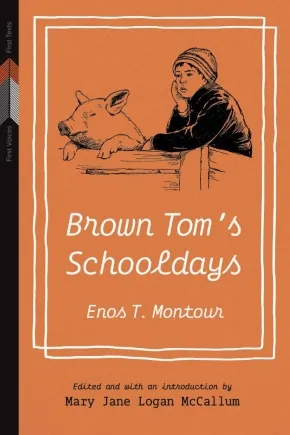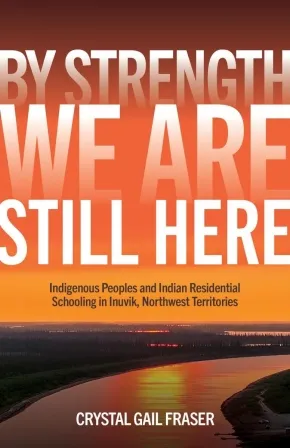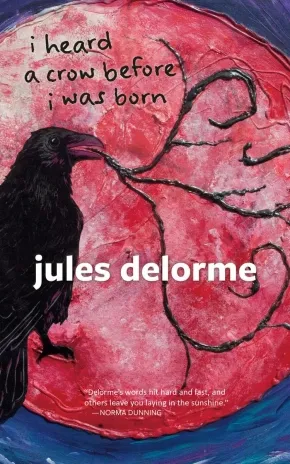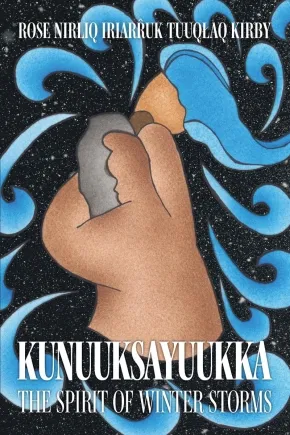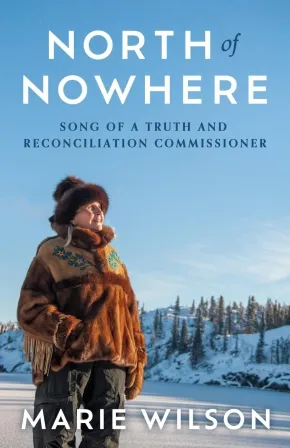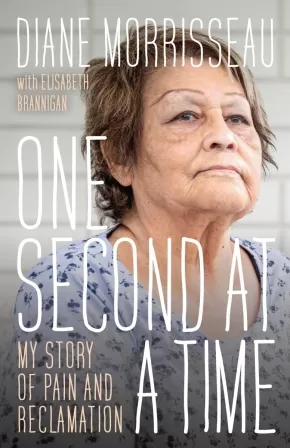Residential Schools / Reconciliation
To deepen and support your understanding of what the Indian Residential School experience was and its impact on Canada please download this document, They Came For the Children:
Click here to download: They Came For the Children
Project of Heart” is an inquiry based, hands-on, collaborative, inter-generational, artistic journey of seeking truth about the history of Aboriginal people in Canada. Its purpose is to:
Examine the history and legacy of Indian Residential Schools in Canada and to seek the truth about that history, leading to the acknowledgement of the extent of loss to former students, their families and communities.
Commemorate the lives of the thousands of Indigenous children who died as a result of the residential school experience.
Call Canadians to action, through social justice endeavors, to change our present and future history collectively.
Click here to visit the website: Project Of Heart
Synopsis:
A celebration and in-depth exploration of Canada’s West Coast through an Indigenous and immigrant lens, Reconciling weaves together personal tales and tough histories for guiding steps toward true understanding.
A personal and historical story of identity, place, and belonging from a Musqueam-Chinese Elder caught between cultures.
It’s taken most of Larry Grant’s long life for his extraordinary heritage to be appreciated. He was born in a hop field outside Vancouver in 1936, the son of a Musqueam cultural leader and an immigrant from a village in Guangdong, China. In 1940, when the Indian agent discovered that their mother had married a non-status man, Larry and his two siblings were stripped of their status, suddenly labeled “bastard children.” With one stroke of the pen, they were no longer recognized as Indigenous.
In Reconciling, Larry tells the story of his life, including his thoughts on reconciliation and the path forward for First Nations and Canada. His life echoes the barely known story of Vancouver — and most cities in the Americas, from Cusco to Mexico City, from New York to Toronto. It combines Indigenous traditions with key events of the last two centuries, including Chinese immigration and the Head Tax, the ravages of residential schools, and now Indigenous revival and the accompanying change in worldview. Each chapter takes the form of a series of conversations between Larry and writer Scott Steedman and is built around one pivotal geographical place and its themes, including the Musqueam reserve, Chinatown, the site of the Mission Residential School, the Vancouver docks, and the University of British Columbia.
When Larry talks about reconciliation, he uses the verb reconciling, an ongoing, unfinished process we’re all going through, Indigenous and settler, immigrant and Canadian-born. “I have been reconciling my whole life, with my inner self,” he explains. “To not belong was forced upon me by the colonial society that surrounded me. But reconciling with myself is part of all that.”
Reviews
“Musqueam Elder Larry Grant’s intimate eyewitness accounts of huge changes in the region’s landscape and its evolving relationship with his people are a must-read for people who want to join Canada’s journey towards reconciliation.” — Paul Yee, author of Saltwater City
“Conversing with the ideal listener, the inquisitive, sensitive journalist Scott Steedman, Larry Grant speaks unflinchingly of his dual heritages and how, for most of his life, he had to suppress one or another or both. Steedman presents Grant’s spoken prose with pristine clarity, and so governmental crimes and real-estate wrongs are laid bare, and unbearable is our outrage, but necessary is our courage to rectify and reconcile.” — George Elliott Clarke, author of Where Beauty Survived: An Africadian Memoir
“Larry Grant’s conversational memoir is a poignant and honest recollection of identity politics as well as a meditation on bearing witness and surviving ecological and cultural displacement. His wise words invite you to reflect on how all of us can better reconcile with the past, present, and future and how we can never escape the fact that everything in this world is connected.” — Donna Seto, author of Chinatown Vancouver: An Illustrated History
Additional Information
232 pages | 5.50" x 8.50" | 16 black and white halftones; bibliography; table of contents | Paperback
Synopsis:
The stories we tell ourselves about our lives matter. How we make sense of the past affects how we make sense of the present— it can mean the difference between continuing patterns of harm and being the one to break the cycle. Scholar and author Michael Gauthier knows this struggle intimately. As a young Indigenous man grappling with the lasting effects of colonialism and intergenerational trauma, Michael turned to addiction to ease the pain and found himself in the prison system. In the intervening years, Michael has worked to understand how Indigenous people can find empowerment through the act of restorying their own lives. Gauthier draws on his PhD research in which he carried out Restorying circles using the Medicine Wheel as a guide to help formerly incarcerated Indigenous men map a new future by looking to their past. Now in Restorying Your Story, Gauthier invites readers to explore the universal application of restorying, and how it can be a powerful tool for all of us to build a good life.
Additional Information
150 pages | 8.50" x 5.50" | Paperback
Synopsis:
A poetic memoir as intricately woven as a dreamcatcher about overcoming the pain of generational trauma with the power of traditional healing.
In her deeply affecting memoir, Soft as Bones, Chyana Marie Sage shares the pain of growing up with her father: a crack dealer who went to prison for molesting her older sister. She details the shame and guilt she carried for years after her family's trauma as she went from one dysfunctional relationship to another, from one illegal drug to another. In revisiting her family's history and weaving in the perspectives of her mother and sisters, Chyana examines the legacy of generational abuse, which began with her father's father, who was forcibly removed from his family by the residential schools and Sixties Scoops programs.Yet hers is also a story of hope, as it was the traditions of her people that saved her life. In candid, incisive, and delicate prose, Chyana braids personal narrative with Cree stories and ceremonies, all as a means of healing one small piece of the mosaic that makes up the dark past of colonialism shared by Indigenous people throughout Turtle Island.
Reviews
"Chyana Marie Sage's writing is a gift that gleams with all of its teeth and skin and soft parts of the earth ... A stunning new voice that pushes the boundaries of form, whose stories swirl across time like sweetgrass braids, like tendrils of smoke." — Kinsale Drake, author of The Sky Was Once a Dark Blanket
"A searing, poetic memoir filled with resilience and strength ... for anyone on a journey of reconciling the pain of the past with the hopes for the next generations." — Dallas Goldtooth, writer, actor, and community organizer
"Chyana Marie Sage writes with an unflinching emotional clarity, lyrical prose, and a wisdom well beyond her years." — Tanya Talaga, author of The Knowing
"Soft as Bones moves like a river across vast territories of recovery and reckoning: it moves powerfully and runs deep, with prose that carries many worlds on its shoulders ... Chyana Marie Sage is a truth-teller, and she has given us an incredible gift." — Leslie Jamison, author of Splinters
Additional Information
296 pages | 5.50" x 8.50" | Paperback
Synopsis:
Revisiting the political activism of WIC Wuttunee
William (Bill) Wuttunee was a trailblazing lawyer, a courageous native rights activist; and one of the architects of the process for the Truth and Reconciliation Commission. His 1971 book, Ruffled Feathers: Indians in Canadian Society, decried conditions on reserves and pressed for integration-on Indigenous peoples' own terms-supporting many of the aims of the Trudeau government's 1969 "White Paper." Though controversial at the time, Wuttunee's arguments were rooted in a foundational belief in the strengths of his people and a steadfast rejection of victimhood. In the fifty years that have followed its publication, Ruffled Feathers has been largely forgotten, though ideas that Wuttunee put forth-ending the Indian Act and the reserve system-continue to find space within contemporary Canadian political discourse.
In this volume, editor Wanda Wuttunee gathers a diverse cohort of scholars to engage with her father's ideas and offer their own perspectives on the opportunities and challenges facing Indigenous peoples in Canada, then and now. Favouring discourse over conclusions, Still Ruffling Feathers leads the reader to a nuanced understanding of the ongoing conversations and unresolved issues stemming from the Indian Act and invites us to envision miyo-pimâtisiwin, "the good life."
Reviews"
"Still Ruffling Feathers explores an important area of modern history on Indigenous leadership. The thoughts and ideas expressed by William Wuttunee still have resonance today." - Dr. Brian Caillou, University of Calgary
Educator Information
Table of Contents
Brotherhood by William I.C. Wuttunee
Acknowledgements
Contributors
Introduction by Wakchan (Wanda Wuttunee), Red Pheasant Cree Nation, Saskatchewan
Chapter 1. Reflections on a Legacy--An Eagle Eye Perspective by Wakchan (Wanda Wuttunee), Red Pheasant Cree Nation, Saskatchewan
Chapter 2. Still Ruffling Feathers Too--More than 50 Years Later by Makookins (Xakiji (Chief) Lee Crowchild), Tsuut'ina Nation, Alberta
Chapter 3. William Wuttunee--Ruffling Feathers in "Indian" Time and Space by Thohahoken (Michael Doxtater), Mohawk Turtle Clan Family of Satekariwate, Ontario
Chapter 4. Learning to Straighten Our Ruffled Feathers: An Education by Askîy Pihêsiw (Robert Falcon Ouelette), Red Pheasant Cree Nation, Saskatchewan
Chapter 5. Ruffled Feathers: A Critical Assessment by Bush Doctor (Peter Kulchyski), Bissett, Manitoba
Chapter 6. Final Thoughts--Debating Our Future, Coming to One Mind by David Newhouse, Onandaga, Six Nations of the Grand River, Ontario.
Appendix A: Excerpts from Ruffled Feathers (1971) by William I.C. Wuttunee
Appendix B. Selected Poetry of William I. C. Wuttunee
Appendix C. Discussion Questions Bibliography
Additional Information
204 pages | 5.50" x 8.50" | Paperback
Synopsis:
Offering readers a unique history of an Indian Day School and a profile of Anishinaabe resilience.
The atrocities of the residential school system in Canada are amply documented. Less well-known is the history of day schools, which some two hundred thousand Indigenous youth attended.
The Curve Lake Indian Day School operated for over ninety years, from 1899 to 1978. Implementing Indigenous community research practices, Jackson Pind, alongside the Chief and Council of Curve Lake First Nation, conducted a search of the federal archive on operations at the school. Students by Day presents the findings, revealing that the government failed in its fiduciary duty to protect students. Harmful and discriminatory policies forced children to abandon their language and culture and left them subject to many types of abuse. To supplement this documentation, Pind also interviewed survivors of the school, who shared their often difficult testimony. He situates Curve Lake’s development and operations within the wider context of Canadian assimilation policies, noting the lasting impacts on Anishinaabe identity and culture.
Not only recovering the archive, written and oral, but building on files repatriated to the community, Students by Day is a story of Indigenous resilience, activism, and hope in the face of educational injustice.
Reviews
“An incredible achievement. Students by Day is innovative and collaborative, pushing Indigenous historical research forward in ways that will offer real, tangible improvements to communities and individuals.” - Lianne C. Leddy, author of Serpent River Resurgence: Confronting Uranium Mining at Elliot Lake
“Students by Day is an intricate uncovering of day schools’ history, navigating archives and life stories. It sets a gold standard for community-centred research, reminding us of the centrality of love to culture, people, and politics.” - Niigaan Sinclair, author of Wînipêk: Visions of Canada from an Indigenous Centre
“With care, clarity, and accountability, Jackson Pind’s book listens to Curve Lake First Nation and honours survivors’ experiences. Students by Day is not only powerful history; it’s a model for community-based research that serves Indigenous resurgence.” - Crystal Gail Fraser, author of By Strength, We Are Still Here: Indigenous Peoples and Indian Residential Schooling in Inuvik, Northwest Territories
Educator Information
Table of Contents
Figures vii
Foreword: Day Schools xi
Drew Hayden Taylor
Acknowledgments xv
1 Introduction to Place: Growing Up in Michi Saagiig Anishinaabeg Territory 3
2 Researching Indian Day Schools in Canada 15
3 The New England Company and the Creation of the Indian Day School 30
4 Mismanagement and Mistrust: The Methodist Missionary School in Curve Lake 45
5 A Legacy of Neglect: The United Church of Canada’s Indian Day School 86
6 Beyond the Classroom: Educational Philosophies and Opportunities 122
7 Experiencing Indian Day School: Education and Integration 150
8 A Class in Resistance: Curve Lake First Nation’s Fight for Education 173
Afterword 197
Jack Hoggarth
Appendix: Letter of Support from Curve Lake First Nation 201
Notes 203
Index 255
Additional Information
256 pages | 6.00" x 9.00" | 9 photos, 5 drawings | Hardcover
Synopsis:
A vital account of the life and many names of Robert Cree, and his plan for a peaceful, sincere, and just path to reconciliation in an angry and chaotic world.
His mother called him “Bobby Mountain.” Elders called him “Great Man.” His people called him “Chief.” Oil men called him “Mr. Cree.” But the government called him “Number 53.” Robert Cree was all of these while facing his people’s oppressors and freeing the ghosts of tortured spirits.
The Many Names of Robert Cree is his first-person account of survival in a brutally racist residential school system designed to erase traditional Indigenous culture, language, and knowledge. It is also the story of an epic life of struggle and healing, as Cree takes the wisdom of his ancestors and a message of reconciliation to the halls of government and to industry boardrooms.
In the storytelling tradition of his people, Cree recounts his early years in the bush, his captivity at a residential school, his struggles with addiction, his political awakening as one of Canada’s youngest First Nation Chiefs, and the rising Indigenous activism of the late 20th and early 21st centuries. He also recounts the oil industry’s arrival on his poverty-stricken reserve and the ensuing struggle to balance economic opportunity with environmental challenges.
Throughout, Cree’s leadership is rooted in his unshakable commitment to the sacred traditional teachings of his people. His beliefs give him the strength to focus on hope, dignity, and building a better future for his community. Now a respected Elder and spiritual leader, Cree champions forgiveness as a powerful force that can bring healing and transformation for all.
Additional Information
264 pages | 6" x 9" | Paperback
Synopsis:
Two neighbouring families, one Indigenous and one white, dine together during Truth and Reconciliation Week. As cultural misunderstanding, colonial violence, and racism both covert and overt surface, White Noise asks, “How do we deal with internalized racism? Do we keep pushing it away … or do we make a change?” Taran Kootenhayoo’s answer is both emotionally intense and outrageously hilarious, a blistering comedic exploration of what it means to live in so-called Canada.
Additional Information
128 pages | 5.51" x 8.50" | Paperback
Synopsis:
How colonial medical policies are linked to health inequities that persist in First Nations a century later.
Tuberculosis, once a leading cause of death in Europe and North America, was understood to be preventable and even curable by the early twentieth century. Yet despite growing knowledge about the disease and interventions that would slow its spread, tuberculosis deaths among First Nations in Canada remained staggeringly high. Government policies rooted in colonialism exacerbated a tuberculosis epidemic. Wilful Neglect explores the devastating consequences of the Department of Indian Affairs’ failed responses to tuberculosis among First Nations in Canada from 1867 to 1945. Even when medical treatment for tuberculosis became widely available, and despite the codification of the federal government’s obligations in treaties and other legislation, the basic health needs of First Nations remained unmet. The government instead prioritized an assimilationist agenda, including the placement of Indigenous children in residential schools, which became hotbeds for the spread of the infection. Drawing on the department’s own annual reports, memoranda, and budgets over more than seventy years, Jane Thomas traces key moments, decisions, and individuals involved in shaping federal health policy, laying bare the repercusions of racializing a disease. Health policies developed by colonial governments without the involvement of First Nations have always failed. Wilful Neglect demonstrates a direct link between the federal government’s historical health policies and the disparities that continue into the present.
Reviews
“Wilful Neglect is a compelling national case study of the federal government’s complicity in the deaths of thousands of First Nations individuals during the tuberculosis epidemics of the nineteenth and twentieth centuries.” - Hugh Shewell, Carleton University
Educator Information
Table of Contents
Figures and Table • ix
Foreword • xi
Shawn Batise
Acknowledgments • xv
Abbreviations • xxi
Introduction • 3
1 “The promises we have to make to you are not for today only but for tomorrow”: Setting Precedent Through Legislation, Treaties, and Government Practice, 1867–1883 • 25
2 “There is a ready compliance on their part with regulations”: Assimilation at All Costs Through Civilizing, Christianizing, and Sanitizing the Infected, 1884–1903 • 47
3 “We are giving the best attention we can to the medical needs of the Indians”: Dr Peter Bryce’s anti-TB Crusade, 1904–1913 • 70
4 “We have been trying to get off rather cheaply”: Treatment of “Indian Tuberculosis,” 1914–1928 • 109
5 “The activities of the medical branch cannot fairly be judged by the visible results”: Vaccine Trials, Pilot Projects, and a New Medical Services Branch, 1929–1937 • 139
6 “A comprehensive and progressive program is long overdue”: New Funding and Treatment Facilities, 1938–1945 • 172
Conclusion: If Preventable, Why Not Prevented? • 193
Afterword • 199
Appendix A: Individuals Responsible for the Department of Indian Affairs (1867–1945) • 202
Appendix B: Department of Indian Affairs Medical Expenses (1868–1904) • 206
Appendix C: Timeline of United Church Mission Hospitals Opened in Canada • 208
Appendix D: Canadian Tuberculosis Association Expenses (1902–1945) • 210
Appendix E: Department of Indian Affairs Medical Expenses (1905–1945) • 212
Notes • 217
Bibliography • 271
Index • 289
Additional Information
318 pages | 6" x 9" | Paperback
Synopsis:
Residential school life through the eyes of a child.
Enos Montour's Brown Tom's Schooldays, self-published in 1985, tells the story of a young boy's life at residential school. Drawn from Montour's first-hand experiences at Mount Elgin Indian Residential School between 1910 and 1915, the book is an ironic play on "the school novel," namely 1857's Tom Brown's Schooldays by Thomas Hughes.
An accomplished literary text and uncommon chronicle of federal Indian schooling in the early twentieth century, Brown Tom's Schooldays positions Brown Tom and his schoolmates as citizens of three worlds: the reserve, the "white man's world," and the school in between. It follows Tom leaving his family home, making friends, witnessing ill health and death, and enduring constant hunger.
Born at Six Nations of the Grand River in 1899, Montour earned degrees in Arts and Divinity at McGill University and served as a United Church minister for more than thirty years, honing his writing in newspapers and magazines and publishing two books of family history. Brown Tom's Schooldays reflects Montour's intelligence and skill as well as his love of history, parody, and literature.
This critical edition includes a foreword by the book's original editor, Elizabeth Graham, and an afterword by Montour's granddaughters, Mary Anderson and Margaret McKenzie. In her introduction, historian Mary Jane Logan McCallum documents Montour's life and work, details Brown Tom's Schooldays's publication history, and offers further insight into the operations of Mount Elgin. Entertaining and emotionally riveting, Montour's book opens a unique window into a key period in Canada's residential school history.
Reviews
"A fantastic read. People need more books like this, which are directly related to the TRC but are also a testament to the strength and creativity of Indigenous literature." — Crystal Fraser, University of Alberta
"Brown Tom's Schooldays is a literary artifact from the residential school era. In this fictionalized coming of age account, Enos Montour captures the youthful hopes, dreams, and disappointments of his real life upbringing at Mount Elgin, one of Canada's earliest and longest running residential schools. Unique in style, tone, and perspective, Schooldays is an important read for anyone interested in understanding the residential school system and for all of us who call the lower Great Lakes home." — Thomas Peace, Huron at Western University
Educator Information
This book is part of the First Voices, First Texts series.
Table of Contents
Foreword: On A Personal Note, The Making of Brown Tom’s Schooldays, 1982–1984 by Elizabeth Graham
Introduction: Enos Montour, Brown Tom, and “Ontario Indian” Literature by Mary Jane Logan McCallum
Brown Tom’s Schooldays by Enos Montour
Chapter 1: Salad Days
Chapter 2: Brown Tom Arrives
Chapter 3: Brown Tom's Three Worlds
Chapter 4: The Milling Herd
Chapter 5: Loaf 'n' Lard
Chapter 6: Brown Tom Makes a Deal
Chapter 7: Too Big for Santa Claus
Chapter 8: Brown Tom's Happy Days
Chapter 9: Trial By Fire
Chapter 10: Brown Tom "Has It Bad"
Chapter 11: Brown Tom Gets Religion
Chapter 12: The Roar of Mighty Waters
Chapter 13: Happy Hunting Ground for Noah
Chapter 14: War Clouds Over Mt. Elgin
Chapter 15: Brown Tom "Arrives"
Afterword by Mary Anderson and Margaret McKenzie
Appendix 1: Glossary of Idioms and References in Brown Tom’s Schooldays
Appendix 2: Bibliography of Works by Enos Montour
Endnotes
Bibliography
Additional Information
216 pages | 5.50" x 8.50" | 20 b&w illustrations, 3 maps | Paperback
Synopsis:
The first comprehensive study of Indian residential schools in the North.
In this ground-breaking book, Crystal Gail Fraser draws on Dinjii Zhuh (Gwich'in) concepts of individual and collective strength to illuminate student experiences in northern residential schools, revealing the many ways Indigenous communities resisted the institutionalization of their children.
After 1945, federal bureaucrats and politicians increasingly sought to assimilate Indigenous northerners--who had remained comparatively outside of their control--into broader Canadian society through policies that were designed to destroy Indigenous ways of life. Foremost among these was an aggressive new schooling policy that mandated the construction of Grollier and Stringer Halls: massive residential schools that opened in Inuvik in 1959, eleven years after a special joint committee of the House of Commons and the Senate recommended that all residential schools in Canada be closed.
By Strength, We Are Still Here shares the lived experiences of Indigenous northerners from 1959 until 1982, when the territorial government published a comprehensive plan for educational reform. Led by Survivor testimony, Fraser shows the roles both students and their families played in disrupting state agendas, including questioning and changing the system to protect their cultures and communities.
Centring the expertise of Knowledge Keepers, By Strength, We Are Still Here makes a crucial contribution to Indigenous research methodologies and to understandings of Canadian and Indigenous histories during the second half of the twentieth century.
Reviews
"By Strength, We Are Still Here demonstrates an intergenerational process of love and strength. Fraser's methodology, theory work, and incredibly thorough research are in and of themselves lifegiving, vital, and serve as an example to all other scholars." — Omeasoo Wahpasiw
"By integrating survivor testimony with archives, Fraser points towards the Indigenous resistance revealed in the ellipses and gaps in the colonial record. This is very important work." — Chris Trott
Educator Information
Table of Contents
Glossary
A Note on Region and Terminology
Introduction—By Strength, We Are Still Here.
Chapter One—“If anyone is going to jail for this, I’m taking it”: Our Relatives Speak
- Education in Nanhkak Thak Before the Arrival of Settlers
- Indian Day and Residential Schools
- The Construction of Inuvik
Chapter Two—Calls Grow. “Listen! It’s louder now. From here, from there. Indian voices, Métis voices, demanding attention, demanding equality!"
Chapter Three—“The long process of tearing our family apart”
Chapter Four—“Making us into nice white kids.”
Chapter Five—“The hazards that can result from too permissive or undisciplined sexual behaviour.”
Chapter Six—“To find that inner peace, it was so important for us all.”
Chapter Seven—“These are our children and they are very precious to us.”
Conclusion—“We knew the value of strength.”
Appendix A
Endnotes
Additional Information
320 pages | 6.00" x 9.00" | 69 b&w illustrations, index, bibliography | Paperback
Synopsis:
A collection of intersecting stories about Indigenous love and loneliness from one of contemporary literature’s most boundless minds.
Across the prairies and Canada’s west coast, on reserves and university campuses, at literary festivals and existential crossroads, the characters in Coexistence are searching for connection. They’re learning to live with and understand one another, to see beauty and terror side by side, and to accept that the past, present, and future can inhabit a single moment.
An aging mother confides in her son about an intimate friendship from her distant girlhood. A middling poet is haunted by the cliché his life has become. A chorus of anonymous gay men dispense unvarnished truths about their sex lives. A man freshly released from prison finds that life on the outside has sinister strictures of its own. A PhD student dog-sits for his parents at what was once a lodging for nuns operating a residential school—a house where the spectre of Catholicism comes to feel eerily literal.
Bearing the compression, crystalline sentences, and emotional potency that have characterized his earlier books, Coexistence is a testament to Belcourt’s mastery of and playfulness in any literary form. A vital addition to an already rich catalogue, this is a must-read collection and the work of an author at the height of his powers.
Reviews
“Belcourt is one of the finest and most sublime writers at work today. This book is a feat of beauty and compression, every sentence reinventing the reader. It’s like entering a quiet room or a secret lake. It’s about our coexistence with lovers, kin, enemies, but also our coexistence with desire, solitude, and an intelligence that in itself is a form of hunger—language as solace, language as light. Belcourt is the rare writer who composes from, to, and because of the soul. It’s been some time since I loved a book so deeply.”—Claudia Dey, author of Daughter
“Through the interconnected lifeworlds contained in Coexistence, we hear a defiantly loving and astoundingly honest response to colonial and racial violence. Billy-Ray Belcourt has written an homage and an elegy to a still-unfolding history—as intimate and hopeful as young romance, as mysterious and life-giving as family. I adore this collection.” —Tsering Yangzom Lama, author ofWe Measure the Earth with our Bodies
“Coexistence filled my heart and lifted my spirit. There are few writers who can authentically capture the beauty and complexity of Indigenous existence both on the rez and in the city like Billy-Ray Belcourt. This book is a resolute proclamation of resilient Indigenous humanity and the nuance and richness we all embody. The stories weave and enrich on journeys that are both familiar and informative. Coexistence is a powerful celebration and a gift to the world.” —Waubgeshig Rice, author of Moon of the Turning Leaves
“Billy-Ray Belcourt masterfully portrays the complexities of Indigenous lives, longing, and belonging through these stories. There are sentences in this collection that I didn’t know I had been waiting to read; my breath caught on several of them. I suspect that readers will be letting out collective sighs while reading this book.”—Helen Knott, author of Becoming a Matriarch
“Billy-Ray Belcourt’s Coexistence is a brilliant exploration of the boundaries both imposed and imagined that exist between beings and the spaces we inhabit. I wildly admire Belcourt’s crisp prose and remarkable insights, yet what haunts me most about these powerful stories is the author’s heart-blasted willingness to be vulnerable on the page. This engaging, alive text drills right to heart of what it is to be Indigenous in the twenty-first century.”—Mona Susan Power, author of A Council of Dolls
Additional Information
200 pages | 5.00" x 7.50" | Hardcover
Synopsis:
i heard a crow before i was born.
i heard tsó:ka’we before i was born.
i heard a crow before i was born opens with a dream-memory that transforms into a stark, poetic reflection on the generational trauma faced by many Indigenous families. Jules Delorme was born to resentful and abusive parents, in a world in which he never felt he belonged. Yet, buoyed by the love shown to him by his tóta (grandmother) and his many animal protectors, Delorme gained the strength to reckon with his brutal childhood and create this transformative and evocative memoir.
Across chapters that tell of his troubled relationships, Delorme unwraps the pain at the centre of his own story: the residential schools and the aftershocks that continue to reverberate.
In this stunning testament to the power of storytelling — to help us grieve and help us survive — Delorme tells the story of his spirit walk as he embraces the contradictions of his identity. As he writes, “i heard a crow before i was born is a man looking back, and dreaming back, and seeing that life, in whatever form it takes, however harsh it might seem, is beautiful.”
Reviews
“Jules Delorme is an unconventional storyteller and writer. His exploration of self through the eyes of being ‘half white on the reserve and half Indian in the city’ speaks to his vast experience as a Kanien’kehá:ka man in Canada. Jules has lived and continues to live the life of a man who has leapt over every hurdle that life places in front of him. To be able to write of his life in the way that he has shows his determination. Thank you, Jules, for taking us all on your spirit walk.” — Norma Dunning, award-winning author of Tainna, July 2024
Additional Information
164 pages | 5.00" x 8.00" | Paperback
Synopsis:
Kunuuksayuukka: The Spirit of Winter Storms is a story of Inuvialuk (Western Arctic Inuk) Elder Rose Kirby's early life, beginning from her vibrant traditional life on the land, to being taken away on a "ship of tears" to residential school in Aktlarvik (Aklavik), before moving around different DEW Line sites following her father Joseph Saraana Thrasher's work. Known for her powerful memory and storytelling skills, Rose vividly recounts stories from her childhood and even infancy.
Kunuuksayuukka: The Spirit of Winter Storms honours the important lessons that Rose has learned from her Elders and family, through watching how they interacted with one another, as well as with the larger natural world. Rose uses Kunuuksayuukka-the spirit of winter storms-and its slow disappearance from her life, to describe her own transition from traditional, nomadic life on the land to moving into housing settlements created by tan'ngit (white people).
Through almost 300 pages, Rose's book weaves through candid stories of human relationships, loss, love and care for one another, humour, pain, strength, and resilience. Most importantly, it is a heartfelt tribute to Inuvialuit culture, language, history, life, and experiences-all through the eyes of an Inuvialuk who has learned to move with the changing world as she grew up. This book is a must-read for anyone who wants to learn about how Inuvialuit lived long ago.
Additional Information
6.00" x 9.00" | 25 b&w photographs | Paperback
Synopsis:
The incomparable first-hand account of the historic Truth and Reconciliation Commission of Canada told by one of the commissioners who led it.
The Truth and Reconciliation Commission was established to record the previously hidden history of more than a century of forced residential schooling for Indigenous children. Marie Wilson helped lead that work as one of just three commissioners. With the skills of a journalist, the heart of a mother and grandmother, and the insights of a life as the spouse of a residential school survivor, Commissioner Wilson guides readers through her years witnessing survivor testimony across the country, providing her unique perspective on the personal toll and enduring public value of the commission. In this unparalleled account, she honours the voices of survivors who have called Canada to attention, determined to heal, reclaim, and thrive.
Part vital public documentary, part probing memoir, North of Nowhere breathes fresh air into the possibilities of reconciliation amid the persistent legacy of residential schools. It is a call to everyone to view the important and continuing work of reconciliation not as an obligation but as a gift.
Reviews
"I found Marie Wilson's North of Nowhere profoundly moving and surprisingly optimistic. With humility and wisdom, she takes us behind the scenes of the Truth and Reconciliation Commission. As a non-Indigenous woman long settled in the North, she has a unique viewpoint, and she leavens an account of the traumatic intergenerational impact of residential schools with details from her own personal story. Wilson goes beyond the grief and misery triggered by the Truth aspect of the TRC to suggest the joy and laughter that true Reconciliation can produce in survivors. But reconciliation will be achieved only if we don't look away. North of Nowhere is a powerful book that shifted my perspective, and, thanks to Wilson's lucid prose, helps the rest of us glimpse what is needed." — Charlotte Gray (CM), author of Passionate Mothers, Powerful Sons: The Lives of Jennie Jerome Churchill and Sara Delano Roosevelt
"For anyone wanting a front row seat to the Spirit, the vision, and the mechanics of the Truth and Reconciliation Commission of Canada, North of Nowhere is definitely it. Commissioner Dr. Marie Wilson recounts and celebrates the courage of everyone involved in one of Canada's most important chapters of coming to terms with residential school Survivors and their families and their communities forever changed with a policy of cultural genocide. I hope everyone reads this and finds their way to support Survivors, their families, and their communities as they continue to reclaim so much of what was stolen. What a profound and riveting read." — Richard Van Camp, author of The Lesser Blessed and Godless but Loyal to Heaven
"The long-matured work of a true elder, this magnificent book is a sober masterpiece of sacred activism. It deserves to be read by everyone aghast at the chaos and cruelty of our world. Its level decency of tone, its lucidity, its determined hope in terrible circumstances both transmit and model those qualities we all now need to build a new world out of the smouldering ashes of the old." — Andrew Harvey, author of The Hope: A Guide to Sacred Activism
"In North of Nowhere, Marie Wilson honours her vow to residential school Survivors to 'do no harm' and to bear witness to and honour their experiences. Marie has achieved her purpose to educate readers and inspire reconciliation and, most importantly, hope. 'I see you. I hear you. I believe you. And I love you'-Marie's words as a Commissioner to Survivors set the tone for this very important book." — Perry Bellegarde, former National Chief of the Assembly of First Nations
"This book is one of the best I've ever read. It made me laugh, get emotional, and helped reset my journey on the role I need to play. As a child of residential school Survivors, I was motivated to continue to learn my language and strengthen my pride as an Indigenous person. Truth must come before reconciliation; this book will empower Canadians to focus on what we can control today when it comes to implementing the Calls to Action. This book advocates for building awareness, understanding, and long-term relationships between Indigenous people and Canadians. If every Canadian reads this book, the Truth and Reconciliation Calls to Action can be achieved." — Cadmus Delorme, former chief of Cowessess First Nation
"Journalist Marie Wilson brings us into the emotion-charged rooms, the sacred spaces of Canada's Truth and Reconciliation hearings. She listens with the heart of a mother, looking into the souls of the adult Survivors standing before her and seeing the children they once were. Though she holds nothing back, in the end this is a triumphant, restorative narrative-a testament to the healing that happens when we share our deepest, darkest truths." — Judy Rodgers, founding director of Images & Voice of Hope, board member of The Peace Studio
"North of Nowhere is the story of a national soul-searching, braided with Dr. Marie Wilson's own personal story and her unique perspective as a Truth and Reconciliation Commissioner. Every page tells a story. This is a book that is bound to ignite dialogue. It has been a catalyst that has been the spark for numerous visits, deep discussions, and reflections, which is why we wanted to write a collective review. Marie's writing had us thinking and talking about the stories, truths, and wisdom shared throughout the pages. Through her writing, Marie elicits emotional and insightful responses that move us along our own journeys of understanding the truth of Canada." — Shelagh Rogers and Monique Gray Smith
"Marie Wilson is the truth keeper entrusted with the accounts of the First Nations, Métis, and Inuit children who went to residential schools, the memories of those who did not make it home and the fate of us all if we do not learn from the past. The savagery of 'civilization' comes into stark relief as children emerge from the pages to awaken the national consciousness and render the TRC Calls to Action imperative." — Cindy Blackstock, executive director, First Nations Child & Family Caring Society
"Beautifully written, Marie Wilson's North of Nowhere is a stunning work of truth, power, and wisdom. An imperative read for all Canadians to understand the layers of shrapnel left by the residential school system that will leave you with emotion and hope. Wilson is an incredibly brilliant and gifted writer." — Angela Sterritt, author of Unbroken: My Fight for Survival, Hope, and Justice for Indigenous Women and Girls
Educator Information
Curriculum Connections: Social Science, Ethnic Studies, Canadian Studies, Indigenous STudies
Additional Information
384 pages | 6.00" x 9.00" | Hardcover
Synopsis:
Bullied and abused at the Fort Alexander Indian Residential day school, Diane Morrisseau fought back and left school at the age of fifteen. Despite her strength, a childhood of trauma and abuse led her into the arms of Edgar Olson, and by sixteen, the young Ojibway-Anishinabe woman had given birth to her first child and married the man who would become her tormentor for the next eighteen years.
For almost two decades, Diane Morrisseau was chained to a brutal husband who abused not only her, but their children. By threatening Diane with their death and hers should she ever try to leave, he ensured that she would continue to endure his cruelty. Notoriously violent, her abuser was aided and abetted by the systems of colonialism that failed to protect Diane during her childhood. Edgar was able to keep Diane and her children trapped in a cycle of violence for years, without being held accountable by law or society.
Despite this, Diane found the strength to walk away. This book is the story of how she did so, and how she rebuilt a life beyond her abuser. Through Al-Anon, Anishinabe traditional healing ceremonies, counselling, and care for others, Diane found a new path illuminated by compassion and purpose.
Diane Morrisseau recounts her traumatic history with one aim: to help other victims of violence know they are not alone, and that escape is possible. The author’s entire career, and this book, testify to her desire to extend to others the hope that eluded her in the depths of her desperate circumstances.
Devastatingly frank about the abuse she suffered, the mothering her children missed because of it, and the systems that allowed it all to happen, Diane today has reconciled the past with a present where she continues to live out the values that matter to her most.
All royalties from sales of this book will be donated to Archway Community Services.
The story of an Ojibway-Anishinabe woman who, against incredible odds, rescued herself and her children from a life of brutal beatings, sexual servitude, and almost unimaginable hardship.
Reviews
"Selected as one of the most anticipated feminist books of 2024."— Ms. Magazine
"A courageous and harrowing story. Morrisseau uses her painful personal journey to frame the horrific history of residential schools. Evocative and illuminating."
— Angela Sterritt, author of Unbroken: My Fight for Survival, Hope, and Justice for Indigenous Women and Girls
"I is, in many ways, a difficult story to read – but it is one that needs to be told. Readers will learn about a courageous woman and the circumstances that enabled an abusive relationship, and hear her message for how to recognize the situation and take steps toward a better life."— Don McCaskill, co-author of In the Words of the Elders
"A fervent call to action, an impassioned plea for compassion and empathy, and a formidable rallying cry that seeks to instigate transformation [… One Second at a Time] serves as a bridge, seeking to connect human souls through shared understanding and collective responsibility."— From the foreword by Marlyn Bennett
"Raw and brutally honest. Morrisseau bravely shares the details of her life with a violent man. Validating and inspiring, her story affirms the complicated healing journey of abuse survivors. It’s a must read for anyone working in the field of gender-based violence."— Kendra Nixon, director of Research and Education for Solutions to Violence and Abuse (RESOLVE)
"Diane Morrisseau has taken us into her confidence with her story, allowing us to truly understand as a society how the relationship between Indigenous people and settlers has created immense hardships for Indigenous people, families, and communities."— Marion Maar, professor, Northern Ontario School of Medicine University
Educator Information
All royalties from sales of this book will be donated to Archway Community Services.
Table of Contents
Foreword: A Tapestry of Truths / Marlyn Bennett
Preface
Prologue
A Note on the Text
1 A Perfect Home
2 Day School
3 Posting of the Bands
4 Mrs. Olson
5 Holes in the Walls
6 Breakdown
7 Scars
8 Breaking Free
9 Seeing the Trees
10 Freedom at Last
Acknowledgments
About the Authors
Additional Information
198 pages | 5.50" x 8.50" | Paperback

